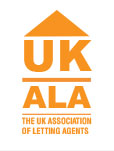Associated/Accredited with





Buying a house is a complex process that requires careful consideration. Our guide to buying a house provides a basic understanding of the entire process, from saving to moving into your new home. Whether you're a first-time buyer or have purchased a house before, our guide covers all the key aspects you need to know.
When planning to buy a house, it's important to understand the costs involved so you can create a realistic budget and determine what you can afford. Some of the key costs to consider include:
Deposit: The amount of money you put towards the purchase of your property. A larger deposit can give you access to better mortgage deals.
Stamp duty/land tax: Depending on where you're buying, you may need to pay an additional tax on the purchase of your property. This varies depending on the value of the property and your status as a first-time buyer. (Stamp Duty Calculator link)
Valuation fee: Charged by the mortgage lender to assess the value of the property and determine how much they are willing to lend you.
Surveyor's fees: To ensure the property is in good condition before making a purchase.
Legal fees: Necessary for the completion of all legal work involved in buying a property.
Electronic transfer fee: Covers the cost of transferring the mortgage money from the lender to the solicitor.
Broker fees: Some mortgage brokers may charge a fee for their services.
Removal costs: Will vary depending on the amount and distance of items being moved.
Mortgage interest rates: The cost of borrowing money from a lender to purchase the property. (Link to mortgage interest rate page)
Insurance: Required by the mortgage lender to protect their interest in the property. It's also a good idea to consider contents insurance to protect your belongings.
Protection policies: To protect your investment and your family in case of unforeseen events.
Insurance: Required by the mortgage lender to protect their interest in the property. It's also a good idea to consider contents insurance to protect your belongings.
Council tax: Based on the value of the property and your location.
Utilities: Electric, gas, water, line rental, calls, broadband, and TV.
Maintenance and repairs: Regular upkeep of the property, including decorating and DIY.
To understand your options and prepare the necessary paperwork, it's a good idea to seek professional advice from a mortgage advisor. Our expert mortgage advisor can help you better understand the options available along with various mortgage schemes and mortgage rates.




